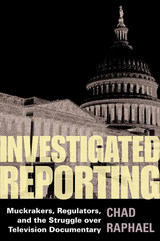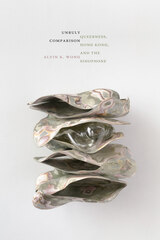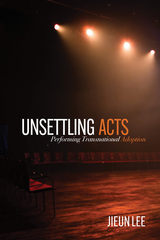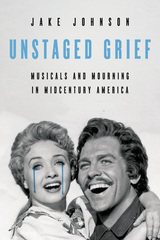
The second volume in the Studies in Interpretation series delves further into the intricacies of sign language interpreting in five distinctive chapters. In the first chapter, Lawrence Forestal investigates the shifting attitudes of Deaf leaders toward sign language interpreters. Forestal notes how older leaders think of interpreters as their friends in exchanges, whereas Deaf individuals who attended mainstream schools possessed different feelings about interpreting.
Frank J. Harrington observes in his chapter on British Sign Language-English interpreters in higher education that they cannot be viewed in isolation since all participants and the environment have a real impact on the way events unfold. In Chapter Three, Maree Madden explores the prevalence of chronic occupational physical injury among Australian Sign Language interpreters due to the stress created by constant demand and the lack of recognition of their professional rights.
Susan M. Mather assesses and identifies regulators used by teachers and interpreters in mainstreaming classrooms. Her study supports other findings, including the success of ethnographic methods in providing insights into human interaction and intercultural communication within classroom settings. The fifth chapter views how interpreters convey innuendo, a complicated undertaking at best. Author Shaun Tray conducts a thorough examination of innuendo in American Sign Language, then points the way toward future research based upon ethnography, gender, and other key factors.

2006 History Division Book Award of the Association for Education in Journalism and Mass Communication,
2006 Frank Luther Mott/Kappa Tau Alpha Communications Award, and
2005 Donald McGannon Award for Social and Ethical Relevance in Communications Policy Research
The public often views television investigative reporting as a watchdog on the government. In fact, some of the centerpiece moments of TV muckraking relied heavily on official sources for inspiration, information, and regulatory protection from critics. At the same time, criticism by government officials and overt threats to regulate the television industry influenced the decision-making and content that went into some of broadcast news's iconic moments.
Chad Raphael's looks at the relationship between journalism and regulation during the celebrated period of muckraking that took place on American television between 1960 and 1975. Raphael offers new insights into the economic, political, and industrial forces that shaped documentaries like Harvest of Shame, Hunger in America, and Banks and the Poor while placing the investigative television documentary into its institutional, regulatory, and cultural context. Throughout, Raphael exposes the complex strands of influence used by government officials to shape--and attack--investigative reporting, and highlights how these tactics created a troubling legacy for the regulation of television news today.

Like many of his generation, James M. Landis was motivated by a passion for public service. From the New Deal to the New Frontier, he devoted his life to shaping the many federal regulatory commissions and to making capitalism “live up to its pretensions.” Attacked by conservatives and liberals alike, he became the most important and most controversial figure in the history of the regulatory process. Donald A. Ritchie offers a superbly documented study of the man that analyzes the contributions of Landis's public career and the personal weaknesses that eventually undermined it, leading to his disbarment and disgrace.
Landis's story is really that of two men. One was a founder and New Deal Chairman of the Securities and Exchange Commission, a major writer and enforcer of regulatory legislation, youngest Dean of the Harvard Law School, and economic troubleshooter for Presidents Roosevelt, Truman, and Kennedy. The other was a private man unsure of his success and incapable of handling his own problems. His repeated failure to file his federal income tax returns, astonishing for a lawyer, was the most obvious—and most destructive—symptom of Landis's tumultuous inner confusion.
Ritchie's exhaustive research into Landis' papers—at Harvard University, the Library of Congress, and the Roosevelt, Truman, and Kennedy libraries—and interviews with Landis's family, associates, and psychiatrist help to unravel the mystery of this problematical man. The result is an outstanding biography of a major force behind business and government policy in the twentieth century.

This highly successful manual has served for nearly three decades as the definitive guide to the safe use of radioactive materials. Completely revised and updated, the fourth edition presents a new dimension by adding coverage of nonionizing radiation, and is thus concerned with the entire field of radiation protection.
The author takes the novel approach of introducing the whole range of energies possessed by particles and electromagnetic waves at the beginning of the text, thus integrating coverage of ionizing and nonionizing radiation rather than considering them as two separate disciplines. He goes on to cover the entire spectrum of radiation sources, including radionuclides, x-ray machines, accelerators, nuclear reactors, power lines, microwave towers, and cellular phones.
With its expanded coverage, including a broader focus on public health issues, this new volume will serve as an important training and reference resource, not only for research scientists, physicians, and engineers, but for regulatory officials, attorneys, engineers, and environmental health and safety professionals. The breadth of citations alone makes this resource invaluable.
READERS
Browse our collection.
PUBLISHERS
See BiblioVault's publisher services.
STUDENT SERVICES
Files for college accessibility offices.
UChicago Accessibility Resources
home | accessibility | search | about | contact us
BiblioVault ® 2001 - 2025
The University of Chicago Press









